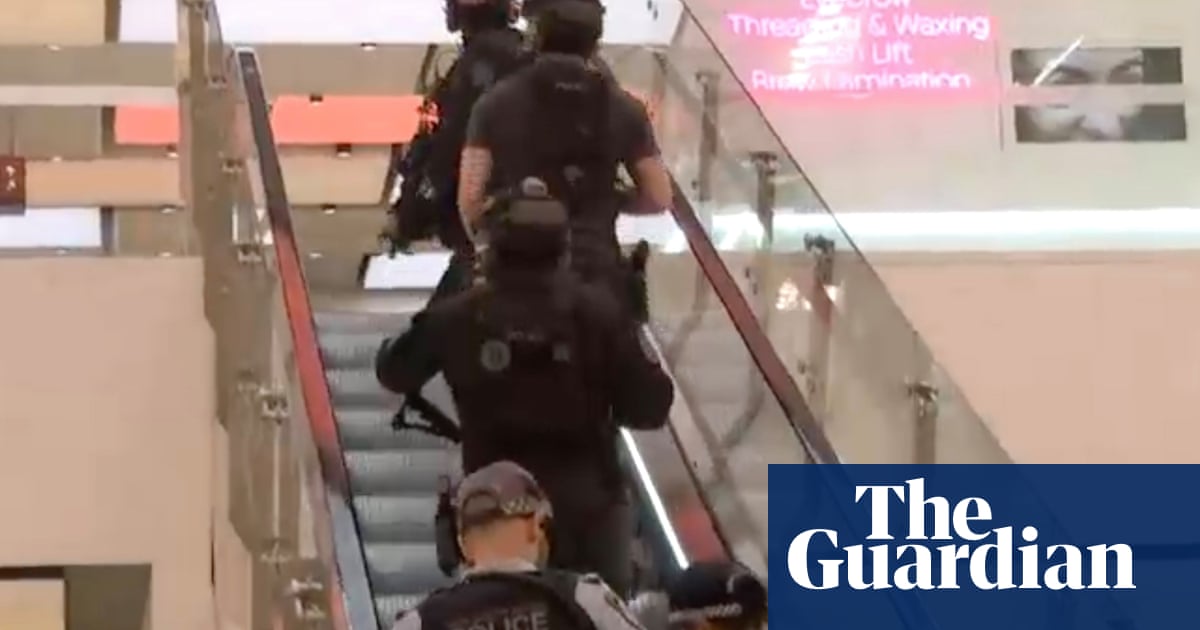The psychiatrist who treated Joel Cauchi and helped wean him off his schizophrenia medication has apologised to the families of six people stabbed to death by her former patient in a Sydney shopping centre.
The doctor told theNew South Walescoroners court in Lidcombe on Tuesday that she treated Cauchi in her private Queensland practice from 2012 to 2020.
Cauchi, 40, killed Ashlee Good, 38, Jade Young, 47, Yixuan Cheng, 27, Pikria Darchia, 55, Dawn Singleton, 25, and Faraz Tahir, 30, and injured 10 others at Westfield Bondi Junction on 13 April last year before he was shot and killedby police inspector Amy Scott.
“I would like to say to the victims, their families, Joel Cauchi’s parents, friends and everybody, that I offer my sincere apologies to you all,” the psychiatrist, known only as Dr A, told the court.
“I’m sharing the pain, it has devastated me personally,” the acute mental health expert said. “No psychiatrist in the world would wish on themselves for this trauma to happen.”
The court on Tuesday was exploring why Cauchi was weaned off his psychotropic medication by 2019 and disengaged from medical care after 2020.
When Dr A first saw Cauchi, he reported mental slowness, did not complain of depression, was guarded about his psychotic experiences and open about his poor organisation skills, she said.
She initially diagnosed him with chronic paranoid and disorganised schizophrenia, then later modified the diagnosis to first episode schizophrenia.
Under questioning by senior counsel Dr Peggy Dwyer SC, the court heard there was some ambiguity around whether the new diagnosis meant Cauchi’s schizophrenia was chronic and susceptible to the same rates of relapse.
“In my mind, he was suffering a long episode of first episode schizophrenia,” Dr A said. “Let’s just move on because it is first episode in my mind.”
She said she “hoped” Cauchi would not relapse to the “terrible” disorganisation, lack of self-care and paranoia symptoms he had when he first developed and was hospitalised for schizophrenia at the age of 17 around 2001.
He was taking 550mg of clozapine when he joined the private clinic in February 2012 and had been taking the drug for 10 years previously under the care of public health doctors.
On being transferred to the private system, Dr A’s strategy was to ascertain whether his “negative” symptoms, including a blunting effect, lack of joy and amotivation, were caused by the illness or the medicine’s side effects.
Cauchi was concerned he was over-medicated. “He was so, so troubled by the side effect,” his former psychiatrist said.
Through assessments, she wanted to find “out what was really going on”, she said. They decided on a plan to lower Cauchi’s clozapine dose and find an optimal level that balanced his wellness with the drug’s side effects.
In 2015, Dr A approached a psychiatrist from outside the practice for a second opinion on the plan to lower his clozapine dosage. In a letter shown to the court discussing that meeting, the second psychiatrist said they and Cauchi had discussed the risks and benefits of stopping clozapine.
On balance, Cauchi said he wished to continue the slow reduction in the dosage.
He agreed that if there was any recurrence of psychosis, the reduction would likely need to be reversed. His mother agreed to support him through the gradual reduction.
It was agreed that family members were most likely to recognise early signs of relapse.
Sign up toMorning Mail
Our Australian morning briefing breaks down the key stories of the day, telling you what’s happening and why it matters
after newsletter promotion
Dr A said the plan was not to take Cauchi off medication altogether and that he would need to take drugs to control his schizophrenia for the duration of his life.
But, in 2018, Cauchi stopped taking Clopine and he ended his OCD medication, Abilify, in 2019.
Dr A did not seek a second opinion when ceasing to prescribe the drugs altogether, the court heard.
“I was very confident that he had recovered from the first episode schizophrenia,” she said.
When asked whether she took responsibility for Joel coming off Clopine and Avilify, she said: “It was my decision and his decision.”
On Monday, the court heard that despite Cauchi’s mother’s concerns about a relapse after he came off clozapine, he was not put back onto the medication.
“During my eight years of treatment, he never showed any signs of positive symptoms, never showed signs of any relapse and never showed signs of any issues of safety,” or any interest in weapons, Dr A said on Tuesday.
“Positive” symptoms include delusions, catatonia and disorganised speech and behaviour.
Dr A told the court that Cauchi’s father had schizophrenia and that the illness was hereditary.
Cauchi continued seeing Dr A after he stopped taking medications because, she said, she wanted to support him while he moved out of the family home into his own unit.
“He was going through transitions … I wanted to see through that he would complete those very stressful transitions and stabilise in a new place. That was the plan and Joel knew that and the parents also knew that.
“Once he transitioned to another place … then I would finish and I would refer him to whatever place he needed to go.”
However, Cauchi did not transition to a new GP after moving away from his home in Toowoomba in Queensland in March 2020. He was “effectively lost to follow-up” from then until the attack, the court heard previously.
